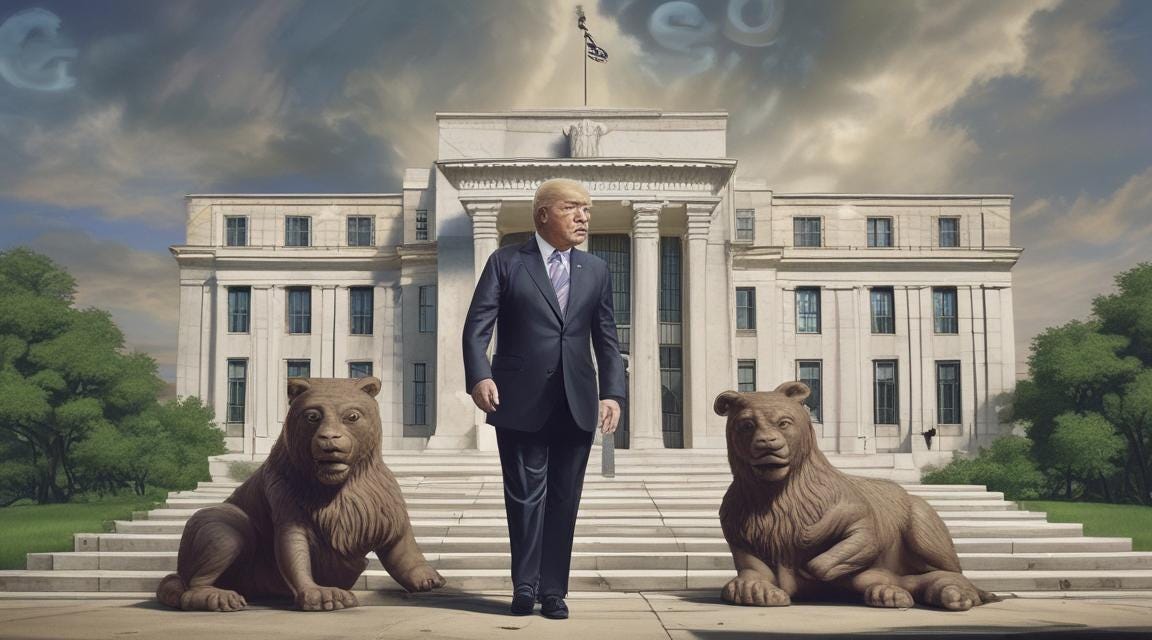Trump Revives Debate Over White House Influencing Fed
How You Can Profit
In a recent press conference, former President Donald Trump reignited the debate over how much influence the White House should have at the Federal Reserve, stating he believes the president should get input on interest rate decisions if elected again.
"I feel the president should have at least (a) say in there. I think I have a better instinct than, in many cases, people that would be on the Federal Reserve or the chairman," Trump said.
His remarks suggest he could push for changes to give future administrations more oversight of the Fed, such as requiring it to consult the president on rate calls or run major regulatory moves past the White House.
Sponsor
Regime Change At Federal Reserve => Full Story >>
While highly controversial, Trump's position taps into the argument that as the nation's elected leader overseeing the economy, a president should have some voice in monetary policies that have sweeping impacts.
Investors Watching Closely
For investors, the prospect of increased White House involvement at the traditionally insulated Fed piqued interest in how it could create market opportunities:
Policy Reversal Plays
With a president's input, Fed decisions like rate hikes or cuts could upend more frequently based on shifting political calculations rather than economic fundamentals alone. This injects uncertainty that investors could look to trade by:
• Going long/short bond funds to play interest rate repricing
• Option straddles/strangles around volatility from major policy zigs
• Trading mispriced volatility using $VIX futures/ETFs
Sector Rotations
If certain regulatory changes had to be blessed by business-friendly or progressive administrations, valuations in areas like financials, energy and housing could drastically swing. This could open:
• Mean-reversion trades by rotating into undervalued sectors
• Short-term arbing before rules overhaul an industry's prospects
While critics lambasted Trump's comments as injecting politics into policymaking, they arguably tap into the debate over how much democratically-elected leadership should influence an unelected central bank. For nimble investors, any materialized increase in Fed policy flux driven by White House pressures could spawn ample chances to monetize the inevitable disruptions.
NEXT YOU NEED TO READ THIS
Former hedge fund manager: "Move your money before the Fed's next meeting"
In 2022, the Federal Reserve raised interest rates and triggered a stock market event that slashed the average investor's portfolio nearly in half.
Now, according to the man whom CNBC calls 'The Prophet', the Fed could soon trigger another dramatic stock event – one investors have seen just 13 times since 1920. He warns: "This event will likely dictate the next decade of every American's financial life, and it's critical for you to take steps now to prepare."



